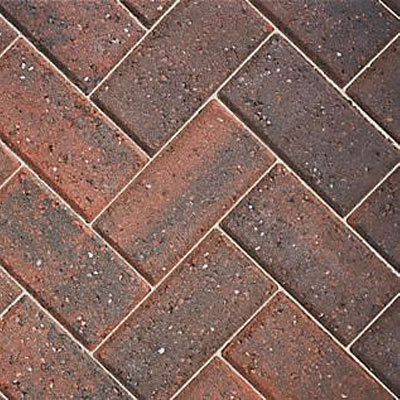These are the 5 most common driveway materials – I compare their pros, cons and costs to see if one comes out on top
The driveway materials you choose affects everything from how much you have to spend, to the look of the finished article and your home's eco credentials

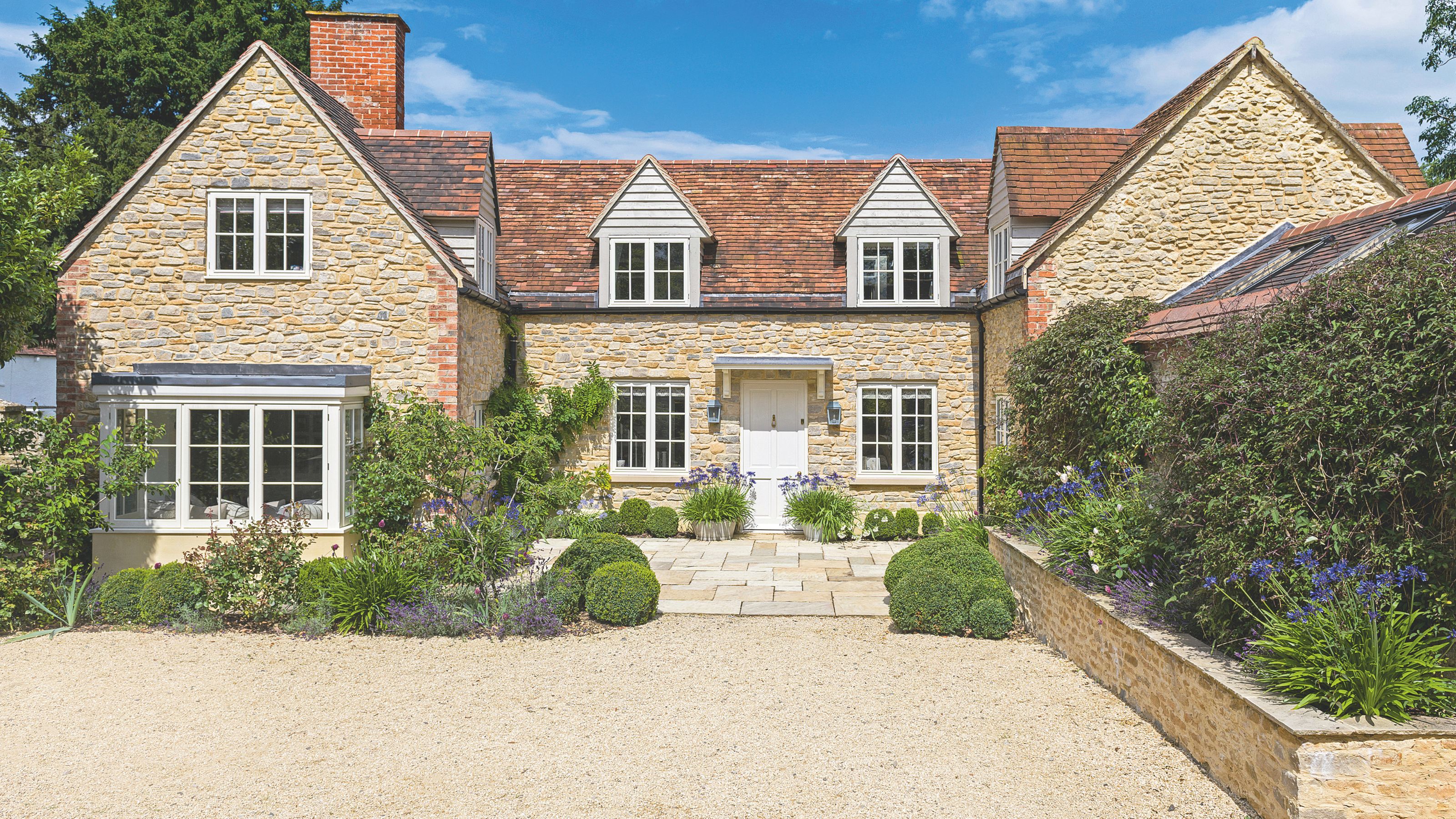
Sign up to our newsletter for style inspiration, real homes, project and garden advice and shopping know-how
You are now subscribed
Your newsletter sign-up was successful
The driveway materials you choose to finish off this aspect of your home not only define how it looks – they also play a crucial role in how well it performs.
While you might have some very firm driveway ideas you are aiming for, it pays to understand all your options if you want to ensure you are creating an external space that will not only enhance the appearance of your home, but that will also stand the test of time and require little in the way of maintenance. Just remember to choose compatible driveway drainage for the very best and longest lasting results.
To help you come to the right decision, we've put together a handy guide, covering all the main options available and their pros and cons.
What different driveway materials are available?
While it is always nice to have a wide selection to choose from, it can make coming to a decision a little harder.
Before settling on any kind of final choice, you need to have a clear idea of what you want from your new driveway and how you plan on using it, as well as your budget. For example, if it is creating kerb appeal that is your priority, your needs are going to be different to someone whose main aim is to take a totally hands-off approach to maintenance.
'Each choice comes with its own pros and cons, so the decision depends on your budget, your tastes and how you expect to use the driveway,' explains Daniel Wickham, owner of First Impression Driveways. After all, choosing the wrong material is one of the worst driveway mistakes you can make.
In general, the choice of driveway materials comes down to:
Sign up to our newsletter for style inspiration, real homes, project and garden advice and shopping know-how
- Gravel
- Block paving
- Tarmac
- Resin bound gravel
- Concrete imprint

Danny Wickham, the owner of First Impression Driveways, has been shaping driveways in Stockton-on-Tees, UK, for over 20 years. Known for his expertise and attention to detail, Danny specialises in creating driveways that combine practicality with aesthetic charm.
His company offers services in block paving, resin, concrete imprint, and tarmac, focusing on tailoring each project to the client's needs. Danny's dedication to quality and customer satisfaction has made him a trusted name in the area. He is also dedicated to sustainable building practices, ensuring each project is environmentally considerate.
1. Gravel driveways
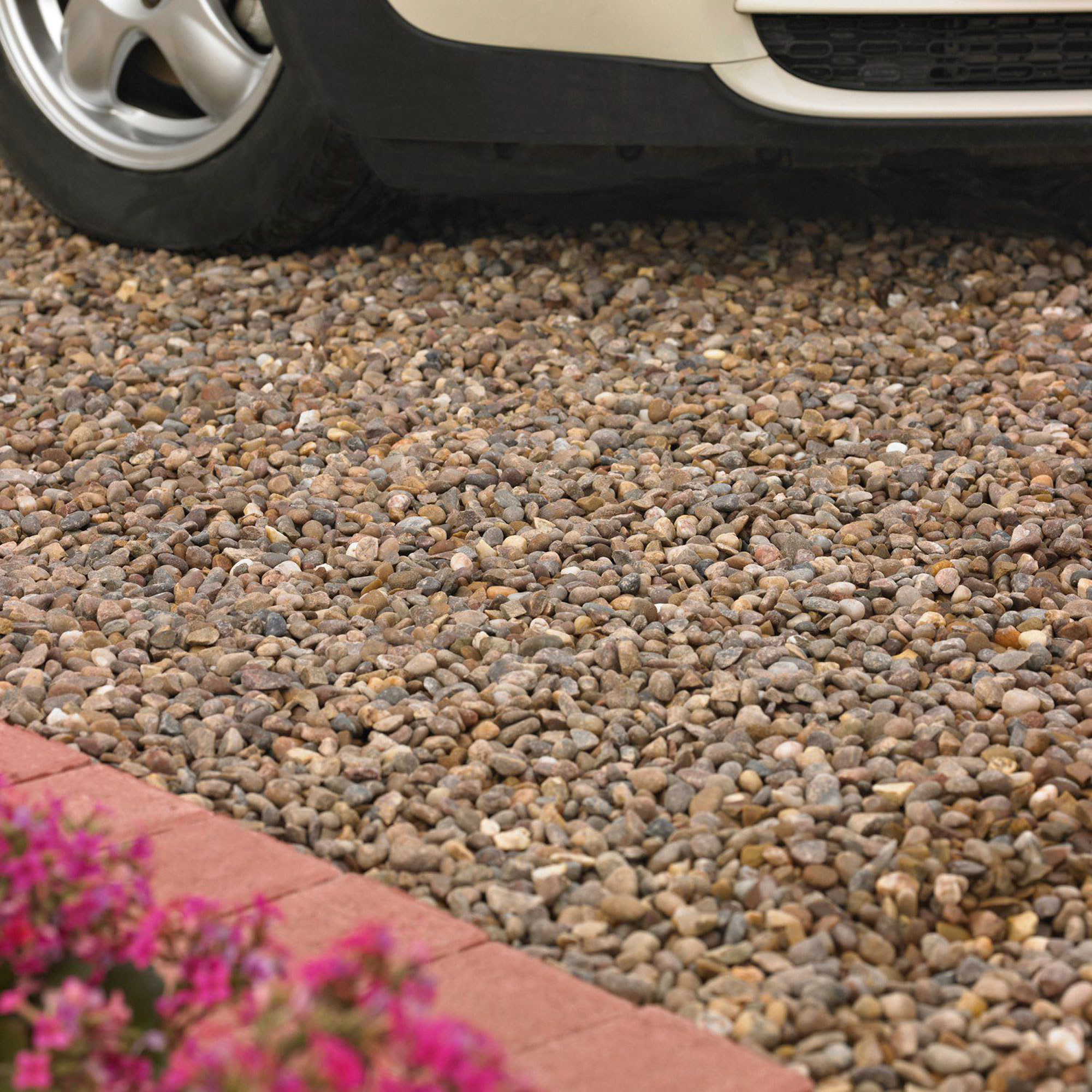
First up let's take a look at gravel driveways – a familiar sight up and down the UK. Ideal Home's Renovation Editor Sarah has a gravel driveway, which she both loves and loathes.
Gravel comes in a huge variety of shades, and stones are available in lots of sizes, from tiny pea proportions to chunkier pieces. What's more, it is often simple to lay on a DIY basis and is really cost-effective too.
Cost: Approx. £30/m2
Pros of a gravel driveway
- Affordability: 'Gravel is typically the most budget-friendly option,' advises Daniel Wickham.
- Permeable: Gravel is naturally permeable, allowing water to drain away into the ground meaning no planning permission will be required for your new driveway.
- Easy to install: This a material that is easy to lay for most DIYers. 'It is also an easy material to top up or replenish' points out Daniel.
For all its benefits there are also a few downsides.
Cons of gravel driveways
- Weeds: Unless you lay a sturdy landscape fabric or gravel grid with a weed membrane, you could find yourself battling weeds on a regular basis.
- Can escape: Due to its loose nature, gravel has the tendency to move around and if it isn't contained properly can escape onto pavements or into flowerbeds. Raking it over regularly can help.
2. Block paving
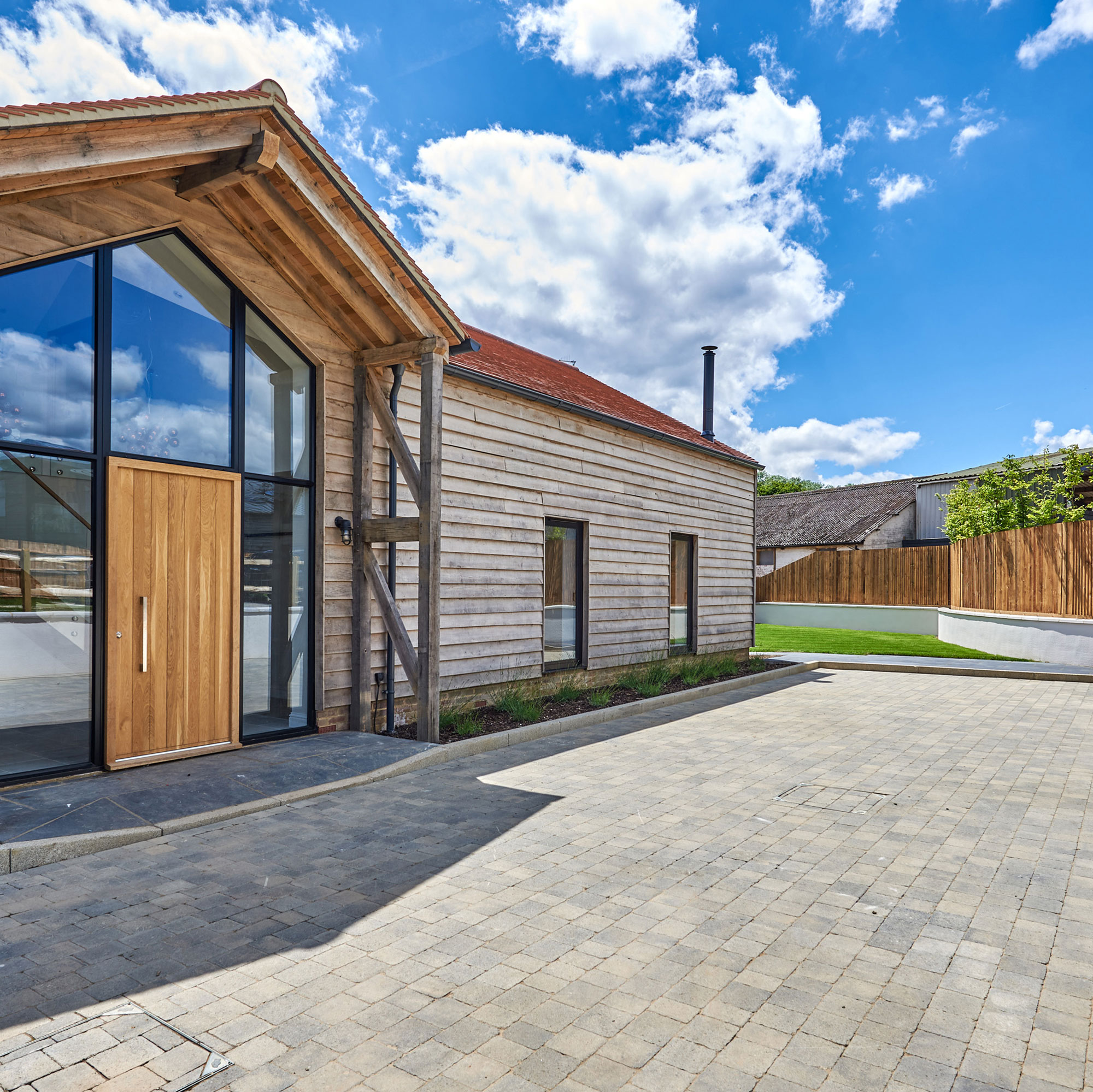
There's a lot to love about block paving, which comes in a plethora of patterns, materials and designs, from affordable concrete blocks, to brick and natural stone setts.
'Block paving is one of the most common sights on UK driveways. It's been around for years, and for a good reason,' picks up landscaping and driveway expert Guy Wall of GCL Products. 'Bricks are relatively cheap and in plentiful supply, there's dozens of installers in virtually every town across the country and it's quite hard to get wrong.'
Cost: £60-120/m²
Pros of block paving
- Huge design choice: 'You can choose from a number of different paver colours, textures and have them laid in a variety of patterns,' explains Guy Wall.
- Easy repair: Should damage occur to your block paving, fixing it should be easy. 'Repairs are straightforward,' says Guy. 'Just lifting one or two blocks and replacing them is a DIY job for even the biggest hammerphobe.'
- Robust: While it is important to check the kind of load the products you are interested in can bear, block paving is usually perfect for heavy use driveways. 'Block paving handles large, heavy vehicles well and copes well with tyre scrubbing which ideal if you have limited turning room or large vans to park regularly,' says Guy Wall.
- Price options: There is a wide range of prices. Affordable concrete block paving costs around £25/m2 while stone setts sit at approx. £85/m2.
Cons of block paving
- Time-consuming installation: Block paving can be a little fiddly and costly to install, given the individual nature of each block.
- Regular cleaning required: Unlike gravel, block paving does need to be cleaned from time to time. 'Block paving can start to look quite tired quickly as dirt and grime builds up and will require regular jet washing to keep it in tiptop condition,' explains Guy Wall. 'This should be followed up by re-sanding the joints and surface to keep the blocks from rocking and becoming uneven or unsteady. This sanding can take time and involves pushing a sand heap back and forth across the surface to fill up the gaps.' It is also worth looking into how to stop weeds growing in block paving.
- Too uniform for some: While there is a good range of choice and colours, the uniform nature of block paving won't suit all properties. 'While you can have a number of different colours, textures or patterns, the amount of choice is limited in comparison to resin bound or even loose stone,' points out Guy Wall.
- Drainage issues: It is possible to buy permeable block paving, but not all will be, in which case another form of drainage will be required. 'The surface tends to keep water moving around, as only the gaps between blocks are (at best) semi-permeable,' explains Guy Wall. 'This can cause some real problems with water run-off and could result in needing to apply for planning permission and the installation of additional drainage to handle surface water.'

Guy has extensive knowledge on sustainable drainage, gardens and landscaping as well as some interest and experience in solar and renewable technology. Resin bound gravel, wet pour rubber surfacing and permeable surfacing are a speciality of his.
3. Resin bound gravel
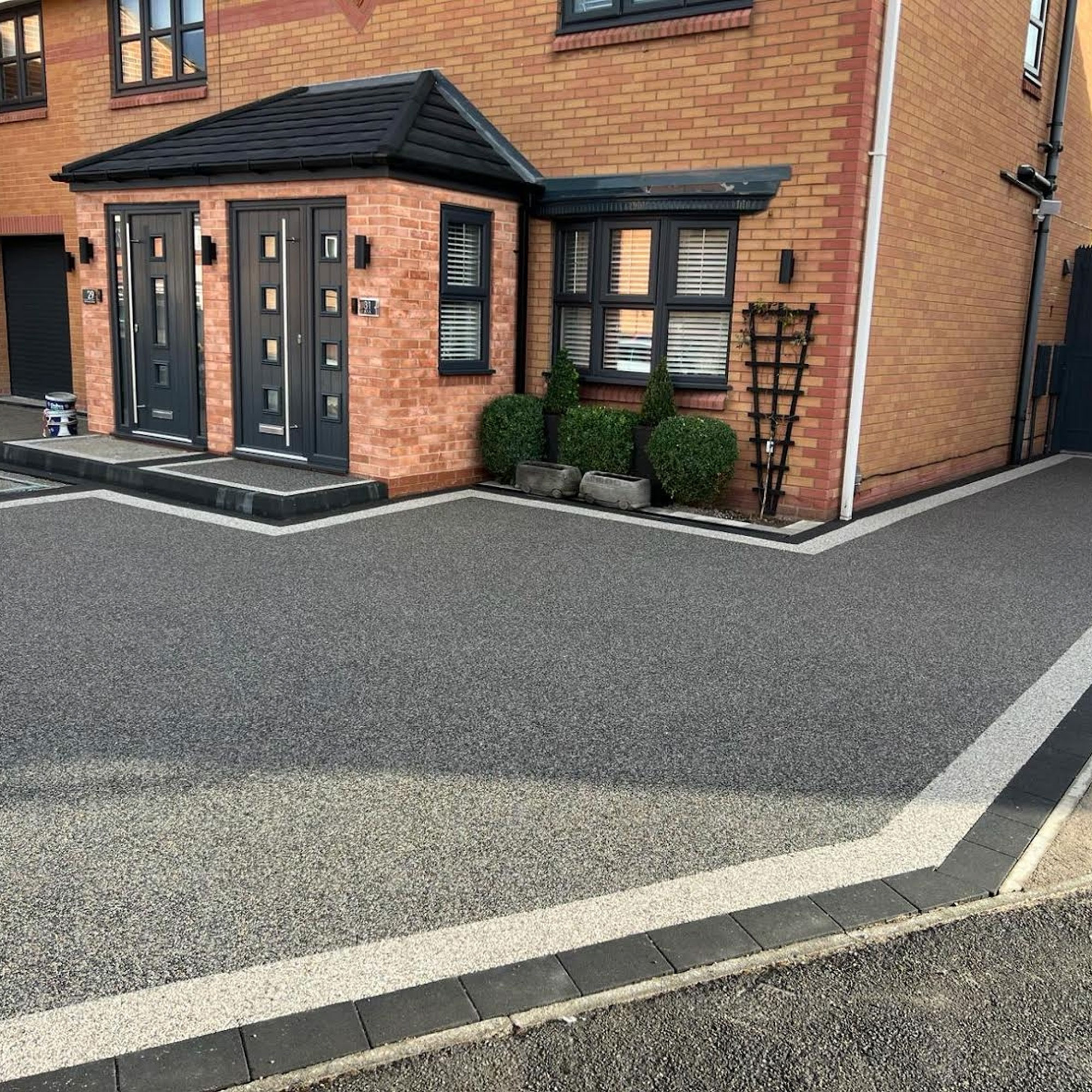
Resin driveways are becoming a far more familiar sight in the UK than they once were. The pros far outweigh any disadvantages of resin driveways.
They are formed by mixing resin and small aggregate together before applying this to the surface.
'Resin bound gravel is possibly one of the best all-round surfacing products available on the market today,' enthuses Guy Wall.
Cost: £60-200/m²
Pros of resin bound driveways
- Permeable: 'Resin has an incredibly high permeability rate (up to 1,000 to 1,500 litres/m²/hour),' picks up Guy Wall. 'This helps to protect homes, gardens and garages from surface water flooding, as it behaves like a natural soakaway.'
- Low maintenance: 'All that's required is a regular simple sweep and washing with a pressure washer twice a year,' explains Guy. 'Products such as BOUNDCLEAN and BOUNDSEAL from GCL can help to keep any algae or fungi at bay and keep the surface shiny and new.'
- Colour range: There is a massive choice of colours and your can create all kinds of designs too. 'The range of colours available is virtually infinite,' says Guy. 'Whether you'd like marble, granite, quartz, yellows, reds, greens, greys, rounded, angular, part-round, there's a blend to suit every project. You can even create your own blend.'
- Durability: A properly installed and well-maintained resin bound surface should last for 25-30 years.
Cons of resin bound driveways
- Cost: This is the biggest reason many people don't go for resin bound gravel. 'The price of resin bound gravel can be as much as £200/m² in certain parts or if there's a lot of groundwork to be done,' reveals Guy Wall. 'However, when factoring in that it requires little maintenance and its long lifespan, it's not bad value for money.'
- Installation troubles: This is definitely not one for the DIYer to try out. In fact, finding good installers in general can be hard. 'As this is a comparatively new type of surfacing, there are a number of installers out there who will happily take on work despite never having installed it before,' says Guy. 'You should always try to find an installer you trust, who can show you examples of their past work (not just pictures, as many will 'borrow' photos from other installers).
- Hard to repair: Unlike gravel and block paving, damage can be hard to deal with on resin driveways. 'Repairs are very difficult to disguise, as the surface is laid as one continuous slab, so any damage to the surface will require a highly skilled installer to rectify,' explains Guy.
4. Tarmac
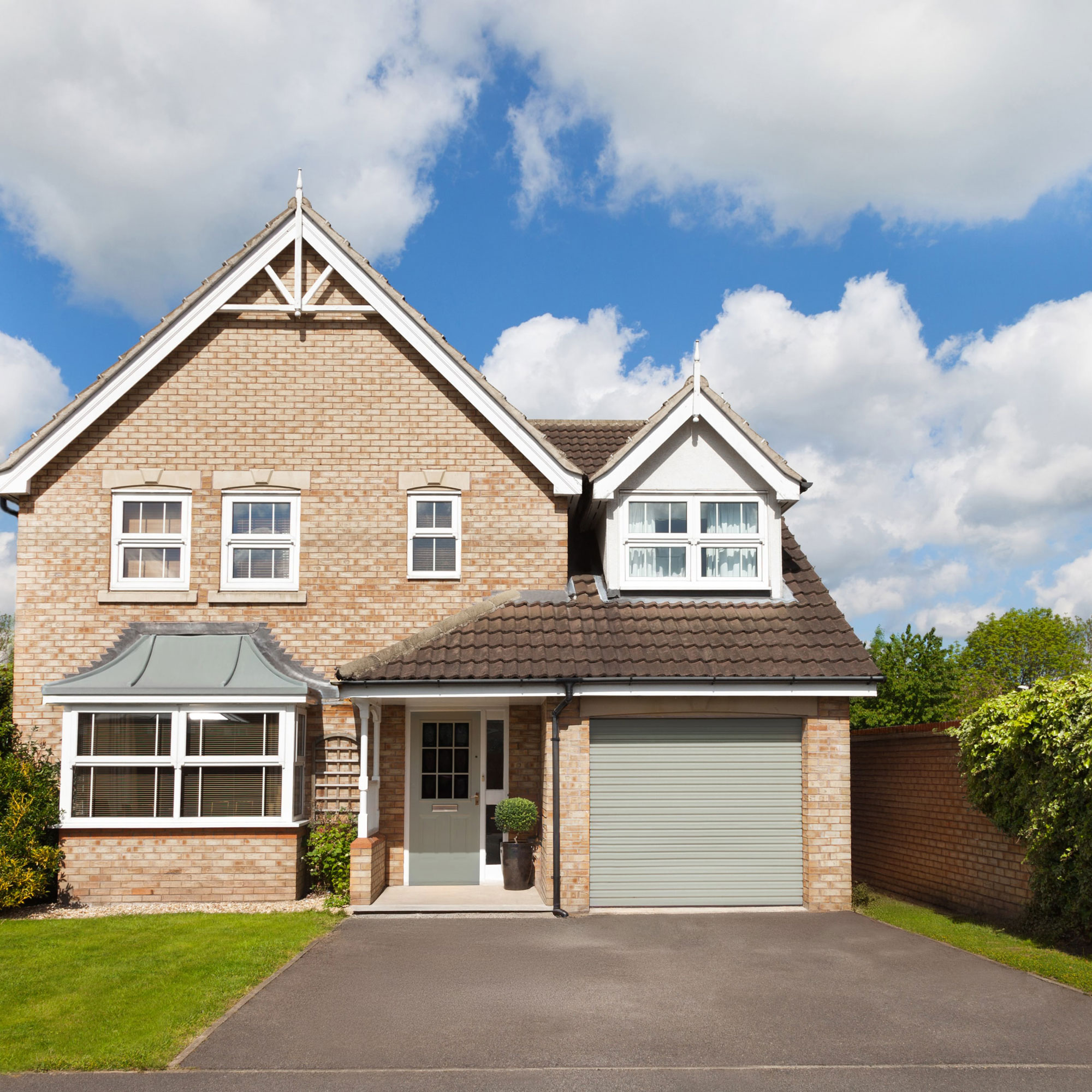
Tarmac has been around for such a long time, providing a simple, fuss free finish. It is often chosen due to how widely availability it is and for its 'tried-and-tested' reliability. That said, when you consider the pros and cons of tarmac driveways, it may not always add much to your front garden ideas.
'It's cost-efficient, quick to install and it's smooth and neat,' says Guy Wall. 'It's little surprise it's on many drives all across the country. There's dozens of installers everywhere, so no worry of finding a suitable contractor to do the job.'
Cost: £40-90/m²
Pros of tarmac driveways
- Affordability: Perfect for those on a budget thanks to cheaper material and installation costs.
- Durability: This is suitable for really heavy use. 'No matter whether a car, van or truck, tarmac can usually handle the task with ease,' says Guy Wall.
- Longevity: 'A properly laid tarmac surface can last for 10-15 years before starting to degrade,' advises Guy.
- Repairable: Damage to a tarmac drive is usually easy to rectify. 'It's a very straightforward repair process which often blends into the surface perfectly,' says Guy.
Cons of tarmac driveways
- Limited design options: For all its pros, tarmac isn't necessarily the most aesthetically pleasing surface. 'It is the least exciting of the surfacing types, it's so boring and plain,' picks up Guy Wall. 'It's generally available in one colour, one texture.'
- Impermeable: You may well require planning permission for a tarmac driveway if it is over 5m2 as it isn't usually permeable. 'You may also need to install additional drainage to handle surface water,' points out Guy Wall.
- Melts in the heat: While UK temperatures rarely soar, it is getting more common and tarmac doesn't love the heat. 'It can melt in high temperatures and become tacky, or even sink or rut, and once it has melted and resolidified it can do so with imperfections, causing cracks or crumbling to occur in winter,' warns Guy.
- Dulls over time: Depending on the look you are after, the surface of tarmac can wear down over time. 'It may need resealing in order for the drive to look fresh,' explains Daniel Wickham.
5. Imprinted concrete

Also known as 'stamped', or 'patterned' concrete, and a relative newcomer to the driveway scene, imprinted concrete is fast gaining in the popularity stakes.
Unlike block paving, which uses individual blocks to create the surface, this method involves pouring a layer of concrete onto a suitable sub-base. Before the concrete sets, a pattern is imprinted into it using a mat, with a choice of designs, such as brickwork or textured stone, available.
A colour and hardener are then applied. The aim is to get the look of more expensive or less durable materials and this can be a great budget alternative to paving slabs.
Cost: Between £70-£100/m2
Pros of imprinted concrete
- Appearance: Many products do a very good job of mimicking the look of stone or high-end block paving.
- Low-maintenance: With no joints, weeds are less likely to sprout than with gravel or block paving.
- Quick installation: When compared to block paving, installation is faster.
- Strong: Able to withstand heavy traffic without sagging or cracking.
- Long-lasting: When installed properly, you can expect imprinted concrete to last at least 20 years and up to 30.
Cons of imprinted concrete driveways
- Complex installation: This is not the best option if you want to lay your driveway on a DIY basis. 'It may have a more complex and expensive installation process,' explains Daniel Wickham.
- Prone to cracking: 'Small cracks may appear and become more apparent over time than with other materials,' warns Daniel.
- Manmade appearance: If you want a natural, classic look you might be better off with gravel or stone setts.
What's the best material for a driveway?
The best material for your driveway depends on how much you are willing to spend, the type of house you live in and how you want to use the new space, for example if you want to incorporate some front garden path ideas.
If you are on a budget and want to carry out the installation of your new driveway yourself, gravel should be your number one choice. However, if you want something that looks sleek and modern and requires next to nothing in terms of maintenance, you'd be hard pushed to find a better option than resin bound gravel.
If you live in traditional property and want a smart, classic finish, stone setts are ideal, while if it is a quick, cost effective and practical finish, tarmac should be your go-to.
FAQs
Which driveway material is the most eco-friendly?
This a tricky one. If you are interested in a sustainable garden, all of the above can be specified to be a little more eco-friendly. Obviously natural and locally-sourced materials are always going to be a more ecologically sound option, but it isn't that straightforward.
'Whether you opt for a block paved driveway, resin driveway or a concrete imprint driveway, the key is to select materials and designs that align with eco-conscious principles,' explains Daniel Wickham. 'Investing in paving solutions that utilise recycled materials in driveway construction and promote permeable surfaces will lead to sustainable choices that benefit both your home and the planet.'
You could also consider a grass driveway, used in conjunction with a grid system. These cost around £40-90/m².
'Grass and gravel grids are a simple and effective way to reinforce the ground without losing that natural look,' explains Guy |Wall. 'They’re perfect for driveways, giving strength and stability while still letting water drain straight through.
'They’re fully SuDS compliant, so they allow rainwater to soak into the ground naturally, helping to reduce surface water run-off and flooding,' continues Guy. 'If you’re building a new driveway or parking area and want to avoid the need for planning permission, this kind of surfacing can tick many of the boxes for you. Grids can often be laid directly on the base left after lifting slabs or block-pavers, meaning much less is involved in ground preparation. There's virtually no raking required, cars do not sink into gravel surfaces and grass can look lush and green all year round.'
What's the cheapest driveway material?
Gravel is hands-down the cheapest driveway material, with average prices of £30/m2, although it isn't too hard to find lower. If you lay it on a DIY basis too you will save further on labour costs.
Make sure you check the best time to get your driveway done and whether you need planning permission for your driveway upgrade before you start work.

Natasha has been writing about everything homes and interiors related for over 20 years and, in that time, has covered absolutely everything, from knocking down walls and digging up old floors to the latest kitchen and bathroom trends. As well as carrying out the role of Associate Content Editor for Homebuilding & Renovating for many years, she has completely renovated several old houses of her own on a DIY basis.

